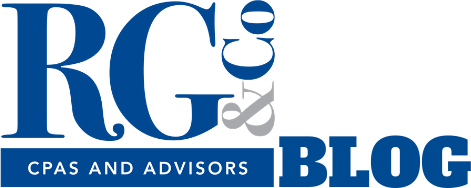Implementing a 401(k) retirement plan can be a rewarding experience for company management and owners. By offering a company-sponsored retirement plan, the organization may benefit through increased employee morale and ability to attract and retain qualified employees. Employees who participate in the retirement plan benefit from decreased income taxes, employer sponsored contributions, and disciplined investing for retirement through payroll deductions.
To maximize benefits and reduce operational risks, all retirement plans must comply with the provisions of the Employee Retirement Income Security Act of 1974 (ERISA). ERISA outlines the plan sponsors’ fiduciary responsibilities for protecting the assets of the retirement plan. This fiduciary responsibility also applies to service providers used by the plan. These fiduciaries must administer the plan solely in the best interests of the participants and their beneficiaries.
The Employee Benefits Security Administration of the U.S. Department of Labor(“DOL”) is responsible for administering and enforcing the provisions of ERISA. Failure to comply with ERISA or DOL regulations could result in harsh penalties being assessed to the plan sponsor. The DOL has summarized the general responsibilities of the plan fiduciaries in “Meeting Your Fiduciary Responsibilities” as follows:
- Acting solely in the interest of plan participants and their beneficiaries and with the exclusive purpose of providing benefits to them;
- Carrying out their duties prudently;
- Following the plan documents (unless inconsistent with ERISA);
- Diversifying plan investments; and
- Paying only reasonable plan expenses.
Observing these fiduciary responsibilities are necessary to protect the plan sponsor, employees, and beneficiaries. Fortunately, options exist for plan sponsors to assist with managing the retirement plan and meeting their fiduciary responsibilities.
For many organizations, the skills and expertise needed to operate a retirement plan will be beyond the internal resources available. To overcome this barrier, the plan sponsor can utilize third-party service providers with the necessary expertise to manage the operations of the retirement plan. Depending on management’s and the plan’s needs, multiple service providers could be utilized to manage separate aspects of the plan. Typical service providers used in administering a retirement plan may consist of the following:
- Third Party Administrator (TPA) – Assists with designing the plan, offers expert advice and administers compliance requirements.
- Recordkeeper – Assists with transactional activity, and participant management.
- Trustee/Custodian – Maintains custody of the plan assets.
- Registered Investment Advisor (RIA) – Offers investment advice and strategy guidance.
A key point to remember: the plan sponsor always has the fiduciary responsibility to administer the plan in accordance with the plan agreement and ERISA and DOL provisions; and this responsibility cannot be delegated away to third parties. The plan sponsor must monitor and evaluate the activities of third-party providers.
ERISA requires retirement plans with more than 100 participants to have an annual financial statement audit performed as part of their responsibility to file the annual Form 5500-series return. This audit provides an independent, third-party opinion to participants, trustees, management, the DOL, and other interested parties that the plan’s financial statements provide reliable information to assess the plan’s financial strength and ability to pay benefits to participants or their beneficiaries. Additionally, an audit may provide management the opportunity to improve plan operations and strengthen internal controls.
When your retirement plan is required to have an audit, one of your most important duties is to hire a qualified independent public accountant with the necessary experience and expertise to ensure that the plan audit is performed in accordance with ERISA and DOL requirements. Rivero, Gordimer & Company has been performing audits of employee benefit plans for over 20 years and maintains membership in the American Institute of Certified Public Accountants’ Employee Benefit Plan Audit Quality Center. This experience makes Rivero, Gordimer & Company a leading choice for your retirement plan audit. For further information or assistance, contact Stephen G. Douglas or Christopher F. Terrigino, call our office at 813-875-7774 to schedule a meeting, or visit our website.




